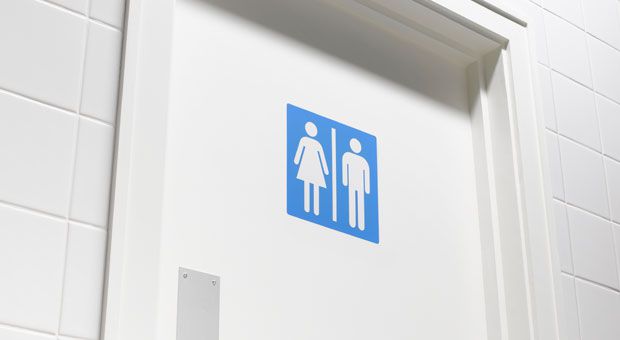Getty Images
Women swap secrets about lots of things, but pee problems can seem like TMI. This is one time we should follow a reality star's lead: Kris Jenner discussed her leakage on Keeping Up With The Kardashians. The truth is, even young, fit women (who haven't popped out six kids like Kris has) have urologic troubles. And with all the simple solutions out there, there's no reason to hold it in. Read on for reassurance and to get relief down there.
'I dribble when I laugh, run, sneeze, cough!'
This is a classic sign of stress urinary incontinence (SUI), which one-third of women experience, according to the American Urological Association. "The issue is typically weakness in the sphincter, which controls the opening to the bladder, or in the pelvic floor," the muscles and ligaments that hold pelvic organs in place and support the bladder, says Kathleen C. Kobashi, MD, head of the section of urology and renal transplantation at Virginia Mason Medical Center in Seattle. Pregnancy, childbirth, age, and chronic constipation can all weaken those muscles. You're also more likely to have SUI if you're a heavy exerciser, a smoker, are overweight, or have a genetic predisposition.
No matter what the cause, you don't have to put up with leakage. Start with pelvic-floor exercises, a.k.a. Kegels, twice a day. A quick refresher from Missy Lavender, founder and board president of Women's Health Foundation:
- Relax your glutes, thighs, and vaginal muscles.
- Squeeze your pelvic-floor muscles up and in for five counts, like you're trying to stop peeing mid-stream; relax for five. Repeat 10 times.
They can work in the moment, too: Contracting when you feel a sneeze coming on can block urine from escaping, says Karen Noblett, MD, professor and division director for urogynecology at the University of California–Irvine. If Kegels don't help, a doctor may prescribe a urethral insert, a vaginal device called a pessary, or medication. A procedure can also be done to insert a supportive "hammock" under the urethra.
'I get way too many UTIs.'
You're in good company. Up to a quarter of women with a history of urinary-tract infections (UTIs) are likely to have a recurrence within six months, according to a study in the Journal of Obstetrics and Gynecology Canada. "A woman's urethra is short and close to the vagina and rectum, where bacteria live," Dr. Noblett says. That makes it easy for them to travel up into the bladder, where they can cause symptoms such as urine that burns or is cloudy or bloody; back, belly, or side pain; and urges to go when you don't have to. Often, recurrent UTIs are linked to having sex. Being in perimenopause or menopause can make you more vulnerable to them, too.
UTIs are usually treated with antibiotics. Even if you're positive you have one, though, head to your gyno rather than asking her to call in an Rx—you might really have interstitial cystitis, which has similar symptoms, but can't be treated with antibiotics. Plus, there's been a major jump in cases of UTIs that are resistant to the two most common antibiotics used to treat them, and taking the meds when you don't need them increases this resistance. A simple culture can confirm it is a UTI and determine what kind of antibiotic you need.
Luckily, little lifestyle tweaks can make you less prone. A few loo basics: Peeing before and after sex and wiping from front to back after a bowel movement all help remove UTI-causing bacteria. What about cranberry juice? Experts now agree that it probably won't knock out an infection. The good news: Drinking 5 ounces of real cranberry juice (not the cocktail kind) twice a day may give you an edge in dodging recurrent infections, a new review of research reveals.
'I had a kidney stone—and I live in fear of more.'
While men are their main victims, the incidence of kidney stones in American women has nearly doubled in the past two decades, a new study shows. These hard masses form when certain chemicals in pee become too concentrated. The resulting stone can cause excruciating symptoms (like back pain and vomiting). No one knows exactly why stones form, but dehydration and diet may play a role, especially in those with a family history. Obesity is also linked to them.
If you experience extreme lower back pain along with nausea, vomiting, or a fever, head to the ER—you could have a serious infection, says Charles D. Scales, Jr., MD, clinical scholar in UCLA's department of medicine and urology. For lesser (but still painful!) symptoms, call your doctor. And prevent stones by drinking lots of water, lowering your sodium and meat intake, and getting the daily recommended 1,000 milligrams of calcium. If that doesn't work, your doc can prescribe drugs to help you feel better, fast.
